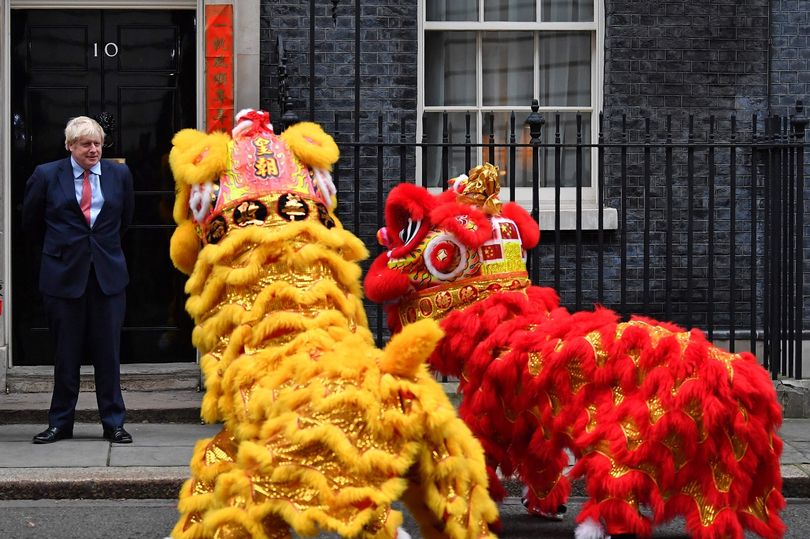
When COVID-19 is the product of a breach of human rights within China itself, ignoring human rights in a post-COVID world order is frankly naïve and hardly “pragmatic”.
In his 1941 State of Union address, U.S. President Franklin D. Roosevelt outlined the Four Fundamental Freedoms that every person in the world is entitled to enjoy: freedom of speech, freedom of worship, freedom from want, and freedom from fear. These four principles would later serve as the foundation upon which the 1948 Universal Declaration of Human Rights was formed, ushering in a new era in which the human rights violations of states became a matter of concern that permeates far beyond its own sovereign territories. Contemporary human rights were borne out of a pragmatic concern that our ideals and principles at a certain level become a personal matter; since without human rights, there can be no human security.
The end of the Cold War would put an end to ideological conflict over the value of fundamental freedoms. Today, our post-Cold War world order lacks such kind of predictability and, thus, more uncertainty with regards to the international order can be expected. Moreover, in a post-COVID-19 world and amid a crumbling Pax Americana under Trump, the traditional state advocates of human rights are now MIA. This is an erosion of the liberal world order which is eating itself from within, with President Trump projecting an image of the USA is quite the opposite of most of its traditional ideals. Across the Atlantic, Brexit has further distorted unity both in the Anglosphere and within Europe.
Indeed, some seem more concerned about the economic damage that COVID-19 will bring if we do not appease Xi Jinping’s China, citing Realpolitik as a justification. In this regard, Professor Kerry Brown argues that given Brexit, the UK should reconsider its stance towards the Hong Kong crisis, given the country’s weak economic relations with China. One can disagree with this assertion since the notion of China as a ‘successful capitalist nation’ leaves the causes and consequences behind this success undefined. That is not to say that relations with Australia and New Zealand are not anything positive, but we have to consider fostering free trade relations across the D-10 member states, as well as with the EU. As for China, the scrapping of the Green GDP Initiative in 2007 is an example. The initiative would have reduced the data on China’s real GDP growth to zero. Indeed, Green GDP took into account environmental degradation, socioeconomic inequalities, and loss of biodiversity in China’s real GDP growth. The environment being hardly a significant concern for the cold realism of the status quo international relations and diplomacy is of course no surprise to anyone.
But that clearly misses the point of what we are faced with during the COVID-19 crisis. Ideally, this pandemic will serve as a tipping point and a shift away from business-as-usual in dealings with China. Arguably, it was the country’s repression of the fundamental freedoms (primarily freedom of speech) of its own scientists and academics that lays at the root of the current crisis. Never has there been a more urgent time to stress the significance of human rights than in this time of Corona. Indeed, our quality of life can only flourish when our fundamental freedoms are respected.
To do so, we ought to do away with this perception that our idealist concerns can never overlap with our pragmatic ones. That is not to disregard China’s ability to be one of the most powerful economies in the world without civil and political liberation as illegitimate. But the staggering boom of China’s economy over the past couple of decades simultaneously led to the accumulation of enormous amounts of inequalities, on top of excessive environmental pollution and abuse. This abuse of nature also notably contributed to the ongoing pandemic. Even with these factors aside, the political economies of our free societies are not designed to compete with state capitalism.
British foreign policy is becoming more inconsistent by the day, whilst China’s policies remain consistently expansionist.
The formation of a Democratic 10 (D-10) and the potential intake of British National (Overseas), or BN(O), passport holders from Hong Kong (combined with potential ‘burden-sharing’ agreement amongst the Five-Eyes) is of course considerably an improvement from its initial blasé stance. But the latter fails to address the rights of the remaining Hong Kongers, and most importantly, should not be a panacea to the growing Chinese aggression in its blatant disregard for international norms. That is not to argue that this development has not been provoked by the Trump Administration, but my point is that this can be a recurring theme not just for Hong Kong but in any part of the world. If so, should our response be the same? The recent decision to merge the Department for International Development (DFID) with the Foreign Office is another example of how not to respond. Though a little premature to say, this could lessen the UK’s room of maneuverability and upset future British diplomacy. In so doing, it could also render the idea of “Global Britain” an oxymoron, given China’s usage of COVID to increase its influence in Africa, for instance. British foreign policy is becoming more inconsistent by the day, whilst China’s policies remain consistently expansionist.
However, China’s new National Security Legislation (NSL) for Hong Kong is more of a distraction from Xi Jinping’s party-state’s own mishandling of the COVID-19 outbreak in China itself, which has evidently hurt his standing amongst the elites of his own party. Those pragmatists who justify the incentive for us to appease President Xi in order to safeguard the financial repercussions of Brexit and of COVID-19 are too short-sighted. Those who are truly pragmatic will consider the long-term implications of our free societies and our very own public health and economic welfare; spurring our foreign policies towards China on to become more sophisticated and paying more close attention to human rights.
Over the past year, we have seen the relentless resistance of the people of Hong Kong against the Chinese state’s incursions. The more active approach that has now been taken towards creating a D-10 should extend to Hong Kong as well. If not, the crisis there is bound to produce refugee flows and further destabilise an already volatile region. This would be miscalculation at a time when Western influence in Southeast Asia is still lagging behind that of China. At the same time, a Cold War with China must remain off the table. The real pragmatic solutions should lie somewhere in between. There should be more craftsmanship put into our foreign policies. China’s declaration of its NSL in Hong Kong is clearly against the Basic Law that governs the city. Insofar as China lacks territorial legitimacy (at least until 2047) and the British by a supermajority in Hong Kong hold political legitimacy, there is little reason why this cannot be an advantage to British foreign policy. Commercial interests count too in the picture.
Despite our current obsession not to exacerbate the status quo, it is clear that we would not have arrived here in the first place if we had been standing up against Beijing’s disrespect for fundamental human rights. The country’s blatant disrespect for these rights emanates far beyond its sovereign territory. Previously, we in the West have considered that the effects of China’s unique form of governance (which is firmly opposed to human rights) was confined to its national borders. Yet, this pandemic has aptly demonstrated the far-reaching impact of China’s illiberalism at home. As such, Western policies ought to revise their hitherto assumptions and economic relationship vis-à-vis the CCP regime. So too must we reconsider our assumption that China’s diplomacy will be more scrupulous given Deng Xiaoping’s guiding philosophy of ‘hide your strength and bide your time’. Clearly, this time has now passed. China’s new position in the world order means that it can afford more knee-jerk reactions such as what we have in Xinjiang, Hong Kong, and now COVID-19.
This is significant despite the facts that while Donald Trump may not be re-elected in November and that Asia’s future will still considerably depend on Western financial institutions and trade relations. The lack of a cohesive strategy in the European and Anglosphere will mean that our intergovernmental organisations such as the United Nations will be more vulnerable to be dictated by China and Russia. How can we, coming from free, liberal societies, protect our own fundamental freedoms if we are not taking proactive steps in maintaining a world order that is now presenting to be getting less liberal and orderly?
Surely bargaining our fundamental freedoms for the sake of what is likely to end up as imbalanced trade relations with authoritarian regimes clearly is not what our forefathers have lost their lives for. At present, the ball remains in Britain’s court and we still get to call much of the shots even without the leverage of the EU. Through the D-10, one can be hopeful that the EU can still continue to render a force of unity and perhaps learn that referendums can seriously backfire. It is not to say that illiberalism anywhere will always affect us - it really depends on the power and reach of the country we are dealing with. While human rights may not be at the forefront of foreign policy-making, what we have now with COVID-19 is already a net financial loss. Realpolitik should seek to include human rights in its approach given the reciprocal implications on our fundamental freedoms, national security, and economic prosperity. It is unclear whether the British government realises this.







